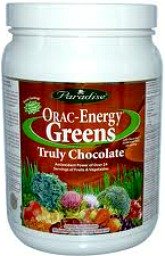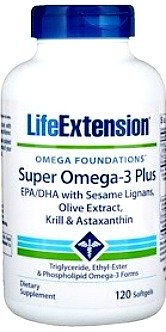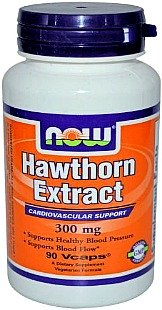Potassium rich foods and their effect on blood pressure
There are many potassium rich foods, despite which this simple mineral is often neglected. Potassium deficiency affects the inner equilibrium which can lead to several health problems.
It is vital for healthy function of the brain, heart and kidneys as well as for the skeletal muscles, strong bones, fluid balance and blood pressure.
Diet with adequate amount of potassium may even help prevent formation of kidney stones thereby reducing the risk of kidney damage.
Although you can take potassium supplements to get recommended dose, by doing so, you are depriving your body from all the other healthy nutrients which whole, fresh, food sources of potassium provide.
POTASSIUM RICH FOODS
It is mainly found in fruits and vegetables but some foods have it more than other. They are:
- Spinach - my preferd source of potassium, when it comes to vegetables
- Potatoes - especially Sweet Potatoes
- Swiss Chard
- Raisins - one of my favorite source of potassium
- Tomatoes
- Carrots
- Most cruciferous vegetables such as Broccoli and Cauliflower
- Mushrooms
- Celery - I add it as a spice to my meals
- Beans, especially white and green beans
- Papaya
- Beets
Although these foods are at the top of the list, when it comes to potassium, there are many more potassium food sources.
Good example of foods high in potassium are oranges, kiwis, bananas, berries, watermelon, whole grains, nuts, seeds, dark chocolate, dates and turmeric. However, clams, yogurt, fish, pork tenderloin, veal, milk and chicken breast are also potassium rich foods.
POTASSIUM AND BLOOD PRESSURE
Potassium can lower blood pressure but it is a little bit more complex. High sodium intake and hormones such as aldosterone, also have an effect on potassium and blood pressure. Aldosterone is final product of renin-angiotensin-aldosterone system which regulates fluid retention as well as sodium and potassium excretion.
If renin is high, angiotensin will go up thereby raising aldosterone. Aldosterone sends a signal to the body to retain sodium which in turn leads to loss of potassium.
In the mean time, sodium also attracts water which leads to water retention and thicker blood. Because of it, the heart has to pump harder, in order to transport the nutrients through the body.
End result of unbalanced diet, is high blood pressure. Even if all this ain't enough, unbalanced sodium-potassium ratio, causes loss of calcium which is essential for strong heart contractions, among other.
DAILY REQUIREMENTS
Daily requirement depends on the age, health status of the individual, fluid loss, hormone levels, hydration and sodium intake. More sodium you ingest, the higher your daily potassium requirements will be, in order to balance these two out.
Level of activity and workout intensity also have role in determining daily requirements.
Daily recommended intake ranges from 400 - 700 mg for newborns, 3000 - 3800 mg for children and up to 5000 mg of potassium, for adults and teenagers.
As the person grows and its number of cells multiplies, the more our body needs it since the mineral is vital for healthy cellular function. However, you don't need to count your daily intake, just make sure that you are consuming plenty potassium rich foods, such as fruits and vegetables.
CAUSES AND SYMPTOMS OF POTASSIUM DEFICIENCY
There are several factors which can lead to potassium deficiency, besides insufficient daily intake of foods high in potassium.
This includes diuretics or water pills, dehydration, high sodium intake, excessive sweating, diarrhea, vomiting and frequent urination.
If you are at increased risk of deficiency, then watch for symptoms such as muscle weakness, lack of energy, slower physical and psychological reactions, irregular heart rhythm and nervousness.
Person that workout frequently and high level athletes should increase their intake of potassium, especially if working out, on high temperatures or at high intensity.
TOO MUCH POTASSIUM - SIDE EFFECTS AND DANGERS
Ingesting too much potassium can cause toxicity but this is virtually impossible to achieve with potassium rich foods.
On the other hand, high intake of potassium supplements can lead to toxicity symptoms such as low blood pressure, breathing problems, tingling sensation in the limbs, nausea, vomiting, impaired brain function and arrhythmia.
However, people with heart or kidney disease, diabetes, stomach problems, adrenal gland issues or some other health condition should consult with their doctor, before taking potassium supplements.
CONCLUSION
Although it is vital mineral for normal function of the nerve cells, transmitting electrical impulses to the human heart, healthy blood pressure and muscle contractions, including heart muscle, too much of anything can be bad.
If you are like me and you prefer getting all the nutrients through diet, which includes potassium rich foods, than you should be careful not to overcook them since cooking causes loss of potassium. This is not problem with fruits but overcooking veggies such as spinach or broccoli can cut potassium content in half.
Also, I like to add some spices such as oregano, celery, parsley and rosemary, during and after cooking which increases potassium content of my meals, thereby working around the problem.
- Heart Healthy Diet: Simple Tips and Guidelines
- Learn everything you need to know about heart healthy diet and find the right one for you. Implement few simple tips for immediate benefits.
- Heart Healthy Foods: How to Get the Most from Them
- Heart healthy foods can improve cardiovascular system function. Foods good for the heart are bursting with vitamins, minerals and rejuvenating phytochemicals.
- Herbs for the Heart and Cardiovascular System
- You have heard for hawthorn and garlic but there are few other herbs for the heart which can help in treating heart disease, naturally.
- The Best Heart Health Supplements
- Besides fish oil, there are several heart health supplements which can be useful. This includes Coenzyme Q10, Salicin, vitamin D3 and few others.
- Heart Healthy Spices
- Although there are many heart healthy spices out there, each of them can help prevent and treat heart disease in its own way, thanks to different types of flavonoids in these heart spices.
- Stress and Heart Disease: How are They Connected
- Stress and heart disease are closely related. In order to decrease the risk of heart problems, we have to learn how to handle the stress and treat its consequences, if we are unable to avoid it.
- Cardio Exercises for the Heart and Cardiovascular System
- Cardio exercises are vital part of natural heart disease treatment. However, which kind of heart exercise you should preform, varies from person to person.
- Good vs Bad Cholesterol: How to Improve Cholesterol Values
- Good vs bad cholesterol conflict is somewhat misunderstood. There is no good or bad cholesterol but only high or unbalanced cholesterol.
- Good Fats vs Bad Fats: Nutritional Facts and Guidelines
- What is the real truth when it comes to good fats vs bad fats? How much dietary fats should you consume daily and what are the best food sources of healthy fats?
- High Blood Pressure Remedies
- High blood pressure remedies range from tips and lifestyle modification to herbs and supplements. However, the method that works for someone else, may not work for you.
- Normal Heart Rate: How is Regulated and Influential Factors
- Normal heart rate varies from person to person. Although, age affects resting heart rate, there are many other factors that can raise or decrease heart rate.
- How to Lose Fat: Overlooked Tips for Weight Loss
- How to lose fat is surely one of the most intriguing questions for so many people. However, the answer is very simple. Eat healthy foods, perform fat burning exercises and take care of your hormones.
- Hormones and Heart Disease Connection
- Don't neglect hormones and heart disease connection. If you want to treat or prevent heart disease you have to balance your hormones.
- Heart Disease and Immune System Connection
- Heart disease and immune system connection is often overlooked, while trying to improve cardiovascular system function. However, there are several things you can do to change this.
- Dental Health Heart Disease Connection: Facts and Tips
- Dental health heart disease connection is one of three overlooked factors, along with hormones and immune system. However, with smart and effective approach we can change this.
- Causes of Heart Disease
- There are many causes of heart disease and factors that can increase or decrease your risk for developing heart related problems. Check how to turn the tide in your favour.
- Symptoms of Heart Disease
- There are few main symptoms of heart disease. Find out which are they, how to recognize them as well as my personal experience with some of them.
- Diagnosis of Heart Disease
- Accurate diagnosis of heart disease is the first step toward recovery. You can't start with treatment before you know what kind of disease you have, obviously.
- Treatment for Heart Disease: Medications and Surgeries
- Standard treatment for heart disease consists of surgeries, medications and devices. Which one is right for you, depends on your condition.
- Heart Disease Blog
- This is a blog about natural remedies, personal stories, helpful herbs and supplements, workout program as well as other tips and facts which may help people faced with heart disease.
- Contact Me
- Ask questions and leave comments about this site here.
- About the Author of Heart Health Guide
- About the author of Heart-health-guide.com website.
- Heart Health Guide Sitemap
- This is sitemap of Heart Health Guide.com. If you want to get better overview of informations on this website, you can get it here.
Copyright © - Heart Health Guide - All Rights Reserved.



